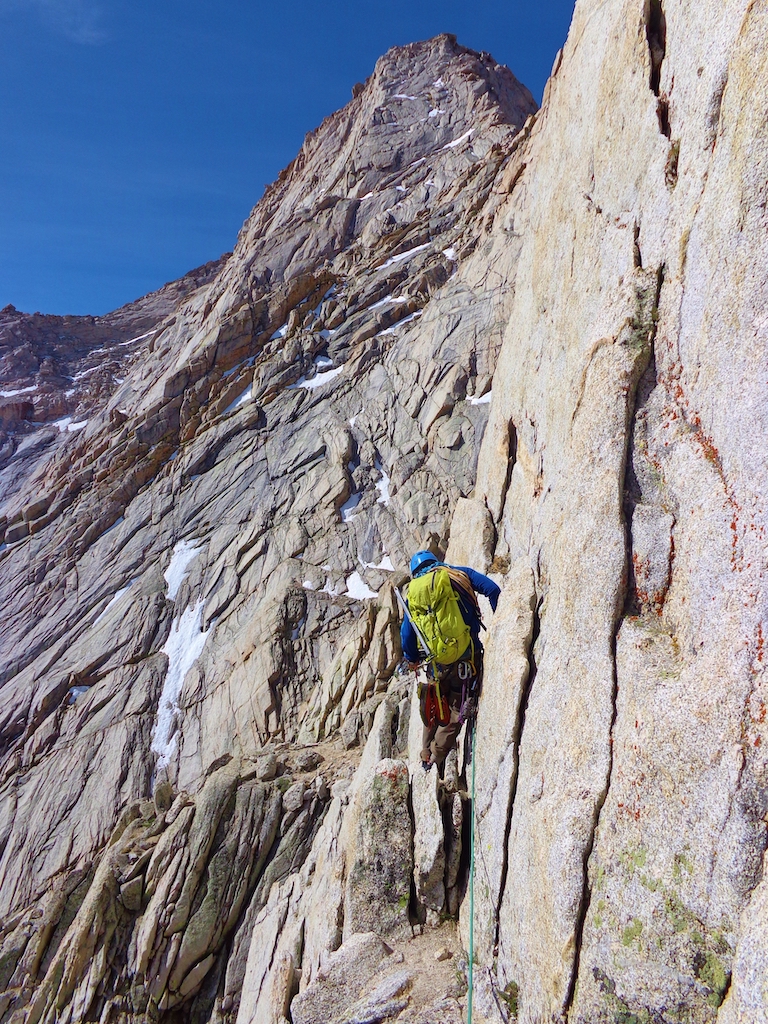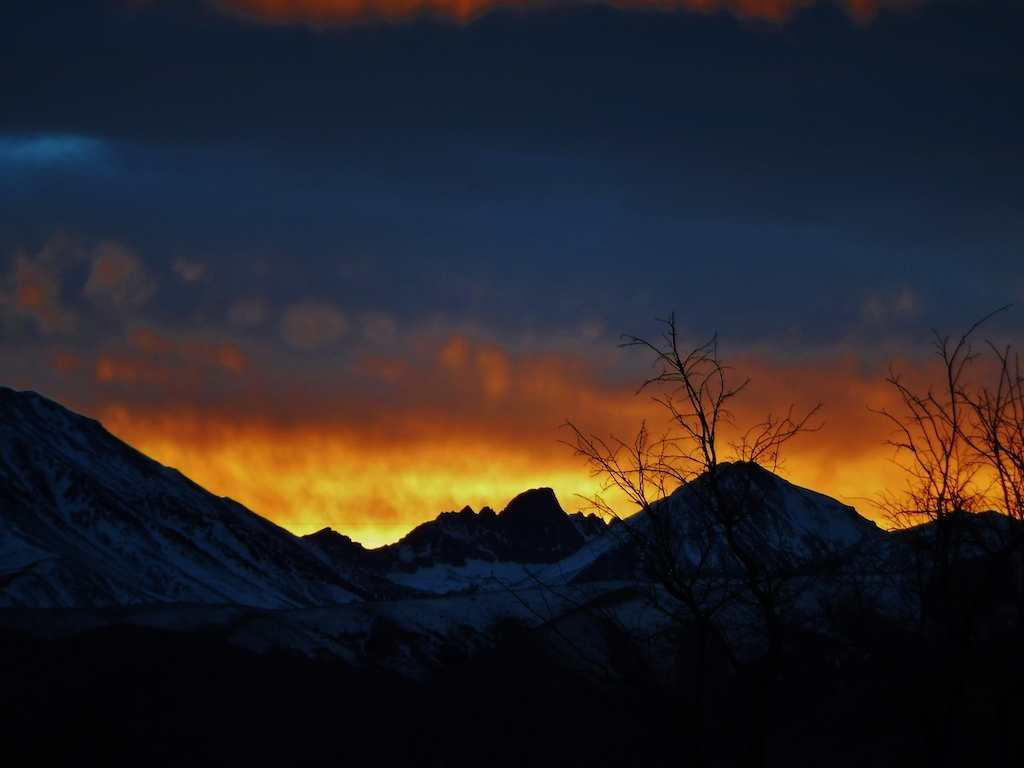The landscape of America is dotted with Christian influences, from the lamentations of oppression and hope of liberation that fused with African influences to form the melancholy blues, to the Christian rock that arose in the 1960s to become a formidable force of conversion in mega-churches. It is extraordinary that the culture of a republic that separates Church and State actually has been influenced just as deeply, if not even more so, by religion in the modern . Over time, I hope to contrast this with artists, musicians, and creative professionals who are inspired by the more low-key presence of Buddhism in the country. One of these is Tully MacKay-Tisbert, whose most recent album, Vicissitudes, is a striking tribute to the First Noble Truth.
“For me, the recording is a musical meditation and exploration of the reality of suffering. The music came from difficult times of doubt and loss. For me, musical expression becomes a way to strive to transcend the suffering and create something that I hope is beautiful, that can bring a degree of solace,” he said. “The album cover is from a picture the North Ridge of Lone Pine Peak in the Sierra Nevada, which I climbed with a friend in June last year. Unrested we set off for the climb in the middle of the night. The route has a deceptive rating that implies easy going. But it is complex terrain with many choices. Early on I led us first unroped up the steepening face of a tower. We tied in as the terrain grew difficult and I led up a steep diagonal crack that ended abruptly on seemingly featureless granite with no way forward.
“A difficult down climb and traverse brought us to a gully. We continued up the ridge, along its ups and downs and narrow margins, sometimes apparently off route and forging ahead anyway. By the time we finished the last four pitches of the headwall and reached the summit, evening was fast approaching. We began our descent in the waning light of dusk, finding our gullies cliffed-out until finally we stumbled down wide and crumbling chute. With exhaustion and dehydration like hungry ghost companions following me close behind, I wandered for hours through the dark trying to connect with the trail. After 24 hours on the go, I hunkered down between some boulders and shivered through the night waiting for the sun to arrive once again. The compositions on Vicissitudes come from reflections through such long nights.”
Tully’s Zen affinity and love of nature mirrors his experience of growing up up in the Adirondack Mountains of Northern New York State. “My parents parted ways at an early age, but since they were both musicians, I was always surrounded by the sounds of guitar, whether visiting my dad on the weekends or as my mom worked on her songs in our home—a rustic and somewhat unfinished house surrounded by woods and dirt roads,” he says. At nine, he lost his mother, but his creative influences intensified as he and his sister moved in with their father. “My mother passed away in August 1994, just a few weeks before I turned nine years old. She had struggled with Hodgkin’s Disease as well the grief from losing her youngest, my baby brother, just a couple years before. Our dad was an intellectual and aspiring science fiction writer who was also the lead singer in a rock band.”

“On my ninth birthday my older brother gave me a guitar. From that time forward I began the process of teaching myself how to practice and a long path of musical discovery. I would find that I could channel my feelings of loss and transcend the sadness into resonance and music, and that music itself could then be transformative.”
He continued his search over the years. “On my dad’s bookshelf was a beat up old copy of The Three Pillars of Zen by Roshi Philip Kapleau. It ignited a spark and soon enough I was reading D.T. Suzuki, Shunryu Suzuki, and the poems of Hakuin. He would re-read Dogen’s Recommending Zazen over and over again. He woke up before school to sit in zazen on the family porch, counting his breaths or just sitting. Serenity and acceptance and understanding soon helped to calm the struggle with chaos, grief, and loss. One of his earliest memories of Buddhist contacts was at age seventeen. He attended a Zen retreat at a Buddhist center in the Catskills of upstate New York. “I remember wrestling the koan, the sound of thunder roaring through the Zendo, and the summer humidity feeling almost tropical. From then on Buddhism and Zen practice would be a refuge, no matter how far I would drift. My practice these days is tied climbing and mountaineering. I find the focus and presence required is moving meditation. And quiet reflection amidst high peaks is an unmatched retreat.”
He would come to Anthropology at the University of Hawai’i and Applied Anthropology in graduate school at California State in Long Beach. “I wanted my study and my work to be guided by the ideals of compassion (karuna) and Right Livelihood, so I focused on poverty, homelessness, and disparity.” He went to Cambodia to volunteer and worked for non-profits that were helping vulnerable people in Southern California. Today, he is living spontaneously and intuitively, much like his musical influences. “My greatest musical inspiration and favorite musician is John Coltrane. Reading about the ways that Coltrane viewed music as a spiritual quest has helped me to better understand my drive to create and search. My musical philosophy owes much to the Zen teacher Shunryu Suzuki as I strive to approach music with a beginner’s mind. To me it is an exploration. I’m less crafting a song than discovering a sound or expressing a feeling, or trying to break down some internal limit if only to see a greater expanse of possibility.
“The music I’m drawn to make lately is rooted in contemporary fingerstyle, slack key, folk, and rock and also draws on influences from around the world. Along with the guitar, I really enjoy playing the guzheng (though I am truly a novice) and finding a place for it in my own compositions. I’ve been heavily influenced by innovative guitarists like Michael Hedges and Kaki King. Since I’m self-taught I have always felt a great exploratory freedom when it comes to music and it has given me some stylistic idiosyncrasies.”
Selected Discography/Releases:
As Tully MacKay-Tisbert:
- For Azalea: Instrumentals, Lullabies and Melodies to Wake Up To
- Mountains of California 2015
- Joshua Tree 2018
- Vicissitudes 2018
- Back to the Beginning (forthcoming September 2019)
As The Animus Ocean
- Familiarity 2014
- Cataclysm 2016
- No Mail Today 2017
- Solace 2018

